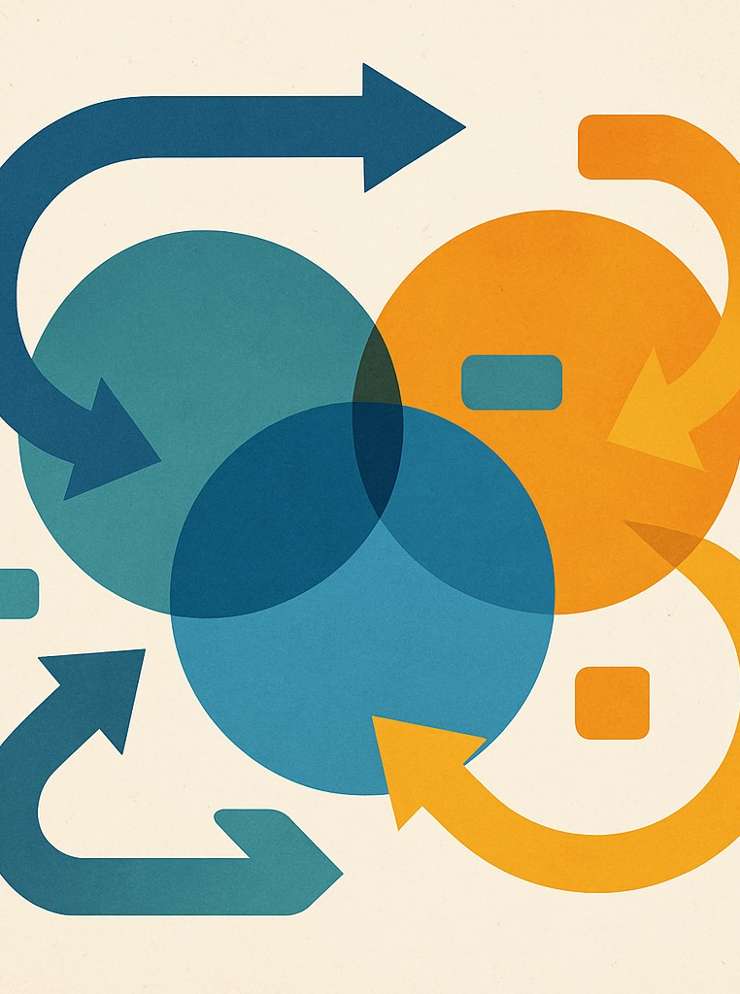News
View all news from the Amsterdam University of Applied Sciences. Looking for a particular news update? Click the magnifying glass at the top of the page to search.
Research in, with and for practice
What happens when research stops observing practice and starts participating in it? The Centre for Economic Transformation at the Amsterdam University of Applied Sciences...

Technology and Collaboration for Humane Care September 24, 2025
Healthcare is under increasing pressure. Due to an aging population, staff shortages, and a rising demand for care, accessibility and quality are at risk. At the same tim...

Regeneration Week: building an economy that restores and renews
This November, the Centre for Economic Transformation will host the first Regeneration Week – a week full of encounters, experiments and knowledge exchange on how to buil...

Countermapping: how new maps rewrite the world
Africa wants to be shown as the correct size on the world map, as recently reported on NOS.nl. Maps can restore people's rights, as UvA PhD candidate Jochem Kootstra of t...

Research group for entrepreneurship to be phased out, expertise to be retained
The Research Group Entrepreneurship will be gradually phased out. During this process, we aim to retain as much knowledge as possible on this important topic.

Start Care & Repair: working together to make clothes last longer
At the Fashion Research & Technology Group, we believe fashion does not end on the catwalk or in the store. The real story begins afterwards, in how we wear, care for, an...

Options Guide for Higher Professional Education 2026: AUAS continues to work on improvement measures initiated
Today, the Options Guide for Higher Professional Education (Keuzegids Hoger Onderwijs) 2026 was published. The guide bases itself largely on some results from the Nationa...

AI expert Susskind: “AI will change the nature of legal practise itself”
On Tuesday 30 September the Amsterdam University of Applied Sciences (AUAS) organised a debate. Keynote speaker: Professor Richard Susskind, author of best-selling books...

Geleyn Meijer steps down from board to focus on Europe
Geleyn Meijer will end his role as vice chair of the Executive Board of Amsterdam University of Applied Sciences (AUAS) from 1 January 2026 and will work to strengthen th...

Merel Noorman has started as associate professor in Responsible AI
The world of artificial intelligence is developing rapidly, raising important questions. How can we ensure that society retains control over technological innovation? Mer...

How do we make the sustainable choice the easy choice?
Sustainable behaviour takes more than good intentions. We know what needs to be done, from collecting rainwater to reducing our meat consumption, but putting these things...

Louise ter Kuile Appointed as Interim Dean of the Faculty of Business and Economics
Effective October 1 2025, Louise ter Kuile will start as Interim Dean of the Faculty of Business and Economics (FBE). She succeeds Suzanne Ekel, who recently decided to s...

Supervisory Board welcomes two new members
Two new members will join the Supervisory Board from 1 September: Manon Kluijtmans and Jaco van Goudswaard. They are succeeding, respectively, Valerie Frissen and Ron de...

Digital Passports for Traceable Fashion
What’s really in your clothes? Where do they come from? And how can you tell if they were produced sustainably? These are the main questions of the project Molecular Digi...

Robot Lab Designs Reclaimed Wood Cladding for Bowling Alley
It is the true eye-catcher of the restaurant at Bowling Leeuwarden: the wall with the wooden panels. The panels were designed at the Robot Lab of the Amsterdam University...

Universities of applied sciences introduce society to quantum technology
Like Europe as a whole, the Netherlands aims to take up a leading position in quantum technology and photonics. However, this will only succeed if the knowledge acquired...
